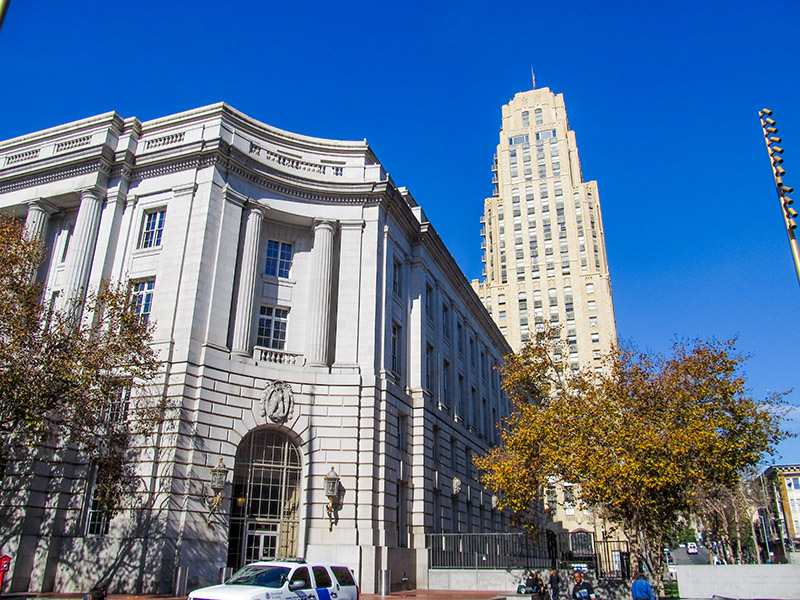Disney Sues Ron DeSantis Over “Targeted Retaliation” Campaign
Lawsuit claims Florida officials have targeted the company as punishment for speaking out against the "Don't Say Gay" law.

The Walt Disney Company has sued Florida Republican Gov. Ron DeSantis, alleging that it has been a victim of a “targeted campaign of government retaliation” for exercising its free speech rights.
The entertainment giant filed a lawsuit in U.S. District Court for the Northern District of Florida, arguing that state officials sought to punish the company because it “expressed a viewpoint the governor and his allies did not like” when it spoke out against the “Parental Rights in Education” law, dubbed the “Don’t Say Gay” law by opponents.
The lawsuit takes issue with Florida lawmakers’ vote to dissolve the Reedy Creek Improvement District, a special tax district covering 25,000 acres of Disney-owned properties in Central Florida, which was created to allow Disney to oversee taxing and economic development decisions and provide essential public services to those properties, where Walt Disney World’s theme parks are located.
Following the dissolution of Reedy Creek, Florida lawmakers set up a new Central Florida Tourism Oversight District, with a five-member board of supervisors made up of DeSantis appointees. Their aim has been to influence not only development decisions but Disney’s programming.
The board recently voided a set of agreements that Disney made with the now-defunct Reedy Creek Improvement District earlier this year.
The lawsuit argues that the state’s actions against Disney have violated the Contracts Clause of the U.S. Constitution, which prohibits local government entities from abrogating their own contracts with private entities, and the Takings Clause of the Fifth Amendment to the U.S. Constitution, which prevents private property from being taken for public use “without just compensation.”
It also alleges that the actions penalizing the company violate the company’s First Amendment rights and right to due process.
The lawsuit names DeSantis, Acting Secretary of the Florida Department of Economic Opportunity Meredith Ivey, and the board members of the newly constituted Central Florida Tourism Oversight District, and the district’s administrator, John Classe, as plaintiffs.
“Disney regrets that it has come to this,” the company writes in its lawsuit. “But having exhausted efforts to seek a resolution, the Company is left with no choice but to file this lawsuit to protect its cast members, guests, and local development partners from a relentless campaign to weaponize government power against Disney in retaliation for expressing a political viewpoint unpopular with certain State officials.”
Disney also notes that state officials have not been shy about their reasons for targeting the company, citing politicians’ previous comments attacking Disney for being “woke” and allegedly pushing pro-LGBTQ programming, in addition to the company’s stated opposition — following internal and external protests by LGBTQ employees and their allies — to the “Don’t Say Gay” law.
“State leaders have not been subtle about their reasons for government intervention,” the company writes in the lawsuit. “They have proudly declared that Disney deserves this fate because of what Disney said. This is as clear a case of retaliation as this Court is ever likely to see.”
DeSantis, a potential contender for the Republican nomination for president in 2024, has carved out an image as a defender of traditional values and opponent of “woke” ideology, often opposing displays of LGBTQ visibility in the name of “protecting children” from unhealthy or problematic influences.
By opposing the law, which restricts discussions around sexual orientation and gender identity in schools, Disney became the perfect target for the populist DeSantis — a large corporation at odds with conservative values that the governor could rail against to appeal to the types of voters who comprise a large part of the Republican Party’s base.
DeSantis has argued that the state’s actions around dissolving Reedy Creek and setting up the new board of supervisors were intended to remove special perks or benefits that Disney had received that were not afforded to other corporations.
“We are unaware of any legal right that a company has to operate its own government or maintain special privileges not held by other businesses in the state,” Taryn Fenske, the governor’s communications director, told BBC News in a statement. “The lawsuit is yet another unfortunate example of their hope to undermine the will of the Florida voters and operate outside the bounds of the law.”
But critics of the move note that the state only began taking action to end Reedy Creek’s special status after Disney — a longtime contributor to many Republicans in the state — announced it would suspend political giving in Florida.
Disney made that announcement in response to an internal backlash from its employees, many of whom had criticized the company’s historical financial support for anti-LGBTQ politicians, as well as former CEO Bob Chapek’s initial refusal to comment on the proposed “Don’t Say Gay” law.
Prior to the DeSantis-appointed board being installed, Reedy Creek approved a last-minute deal giving Disney the right to review any changes to properties within the district.
The contract limited the power of the Central Florida Tourism Oversight District. It said that the agreement would remain valid in perpetuity or until “21 years after the death of the last survivor of the descendants of King Charles III, king of England.”
Republicans in Florida balked at the move, and the DeSantis-approved board of supervisors took action to claw back some of their power, prompting the lawsuit.
Disney’s new CEO, Bob Iger, has previously accused DeSantis of being “anti-business” and seeking to bully businesses by using the power of the state to punish or penalize them when they don’t conform to or parrot certain political views.
Many legal experts believe that Disney has made a strong legal argument that it is being punished for political speech — a direct violation of the First Amendment — and believe a judge will reject a request from the DeSantis administration to dismiss the lawsuit.
“DeSantis has admitted — indeed bragged about — retaliating against Disney to punish it for its speech on an issue of public concern and importance,” Ted Boutrous, a First Amendment attorney, told CNN. “That is a classic First Amendment violation.”
Rebecca Tushnet, the Frank Stanton Professor of First Amendment Law at Harvard Law School, added that Florida politicians have been transparent about the motivation behind the legislative actions taken against Disney. She said the company “has a strong case, both under the First Amendment and potentially for violation of its property rights that the state is trying to destroy.”
Support Metro Weekly’s Journalism
These are challenging times for news organizations. And yet it’s crucial we stay active and provide vital resources and information to both our local readers and the world. So won’t you please take a moment and consider supporting Metro Weekly with a membership? For as little as $5 a month, you can help ensure Metro Weekly magazine and MetroWeekly.com remain free, viable resources as we provide the best, most diverse, culturally-resonant LGBTQ coverage in both the D.C. region and around the world. Memberships come with exclusive perks and discounts, your own personal digital delivery of each week’s magazine (and an archive), access to our Member's Lounge when it launches this fall, and exclusive members-only items like Metro Weekly Membership Mugs and Tote Bags! Check out all our membership levels here and please join us today!































You must be logged in to post a comment.